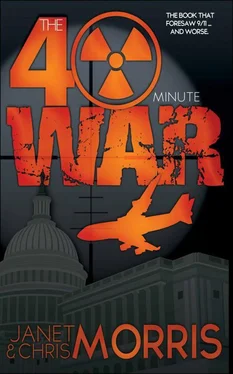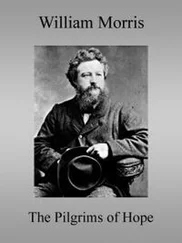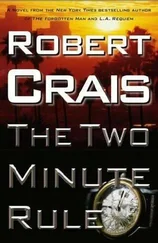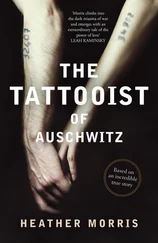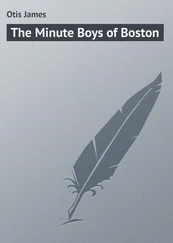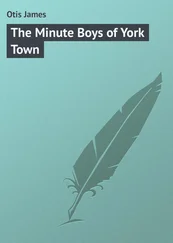In the Mandate gloom of the Disraeli Bar’s Happy Hour, she was nursing a beer and staring at herself in the mirror, sandwiched between a BBC stand-up correspondent and a friend of his from the Manchester Guardian , trying to determine if she looked like a spy, if there was anything feral or furtive about her face.
But it was her same old face that peered back, tired but still gamin; not the face of somebody who would sell out friends and colleagues just to get laid. But that was what she was doing, she told herself harshly—it wasn’t Beck’s patriotic pep talk, his influential position, or his power base—none of that mattered any more. It was Beck himself—who had offered to take control of her life when she no longer wanted it, who was free from doubt and burning with purpose when everything seemed doubtful and purposeless—for whom she spied. When he’d left town, she’d panicked, though he’d told her he would. She’d called the consulate every day like a shameless teenager, using one excuse after another, but he was never there and she’d thought he was avoiding her.
Then the honey-haired Sabra girl had knocked on her door carrying a box full of filters, mechani cal parts, rolls of silver tape and a message: “Yes, he’s just back now. He sent me to see to your windows; also, your air conditioner. Call him to make certain, yes; it’s perfectly all right; I’ll wait here.”
By then Chris had been resentful of Beck, of the way he’d used her and discarded her. The appearance of the beautiful, deep-eyed Sabra at her door, calling him “he” in that way women had, made Chris Patrick achingly jealous. But when Beck took her call and she heard the pause, then the protectiveness in his voice as he made her describe her visitor, then his subterranean amusement, she was lost all over again—headlong in love, and bereft of a single bit of information worth his attention.
By tonight, she had to have something good, to prove to him she’d never doubted, although she’d done nothing but doubt, for tonight he was taking her to dinner: “Let’s make a celebration of it; wear something glitzy and I’ll show you what a government expense account can do.”
She should have been shopping for something suitable, a designer original like his wife might have; maybe she could still charge it to the bureau and reimburse them later, if there was anyone left in accounting back home to question her expenditures.
Instead, she’d panicked—she had nothing to report—and come down to the bar where she lurked like a fat spider, listening to her friends with new ears.
“This, then,” said the Brit on her right, with whom she’d spent a night behind sandbags in Samaria taking Syrian fire and comfort in each other, “is assuredly the meaning of life.” He was holding up an empty glass laced with beer foam in a pigskin-gloved hand.
It was a press-corps riff, a long-standing game they played: a spent AK round that had penetrated your luggage, the ubiquitous yellow grit regrinding your camera lenses, a spike order for a story you’d sweated blood to write—all of these, at one time or another, were declared to be the one true meaning of life, then discarded in favor of some subsequent oracle.
“What is?” she rose to the Brit’s bait desultorily. “That?” She sniffed at the glass. “Only if it’s full.” And then she pumped him: “What about the casualty estimates—if you don’t like mine, what’s your guess?”
“Christine,” he called her that because he’d screwed her, this lord’s nephew, “it can’t be that your sources have all dried up, can it? Is that what you’re on about?” He leaned close enough to sniff her hair: “It’s not cricket, you know, to grieve openly when your country is summarily demoted—take a leaf from our book; we’re professionals at the stiff upper lip.” Then, louder, his head drawing back, to include the rest of the newsies at the bar: “My sources say the US casualty count is about fifty-five million and rising steadily; they’ll never admit to that, of course. But we’ll know better after the fact-finding tour. I’d give my sodding peerage to be on that plane—”
“Yours, is it, now?” she quipped, filing away the data. “Was Knightsbridge nuked too, then?”
“Rule Britannia, no,” he said it like profanity: “We NATO blokies walked away without a scratch—from the big stuff, at least; we’ve just the weather- borne radiation to worry about. A diplomatic victory, thanks to the—”
A soft mid-European accent intervened: “NATO refused to fire its missiles, used the hot line to let Moscow know their position—and the Warsaw Pact, too, deliberately delayed firing…. It’s either the first step toward European independence of the superpowers or flagrant treaty violations by former allies and satellites, depending on whose rhetoric one chooses to believe.”
Chris could see the speaker in the bar mirror: a dark, brooding Mediterranean type who could have been Greek or Semitic, with a stocky, muscular body of the sort they breed on the Aegean or the kibbutz and which always looks uncomfortable in city clothes, and a shock of black curls; on his jacket pocket, his ID said Jerusalem Post , NY.
The Brit scowled down at him with all the intimidating superiority of the Empire: “You’re the new one, aren’t you? What in bloody hell, if you don’t mind me asking, is the use of putting on a new boy for the New York edition when New York is—”
“Elint; everybody calls me Elint,” said the newcomer brightly, thrusting out a browned hand—remarkable in that it was not gloved when everyone but Chris, it seemed, wore gloves now, even indoors—that took the Brit’s pale, limp one in a surprise attack, pumped it smartly, and then went on to seize Chris’s and draw it to his lips.
She hated men who kissed your hand; the gesture blew away all the years of struggling toward women’s rights in one dismissive moment.
“Elat?” she repeated what she thought she’d heard; his badge said “Levy.”
“Elint,” he corrected firmly as he lowered her hand but didn’t release it; his eyes burned on her like an Arab’s, black and smouldering. “And you are the famous Christine Patrick, my idol, my role model among the Western—”
The Brit let out a derisive whoop and as he trumpeted an exact quote of Elint’s words like an urgent bulletin to the rest of the bar, the Post reporter bristled: “If you’ll allow me the pleasure, Miss Patrick, a drink? In a quiet corner? There?”
There was something in the manner of the Post reporter that made her go with him to the corner he’d chosen, let him pick her up—if that was what he was doing; the way he moved her through the crowd reminded her of the time she’d been led across the Green Line into a west Beirut stronghold by a Palestinian fighter…. maybe it was something about the eyes, which seemed to scan everything from cover.
Not until they sat together did she realize he had a briefcase with him; in the briefcase was a gaily wrapped package with blue ribbon, the sort you get in a souvenir shop. He put it not on the table, but on the button-tuck bench seat between them.
“A present,” he explained. “From our mutual friend, Beck.” He showed big white teeth.
Chris’s heart was pounding, her pulse racing: “From—he’s cancelling? How did you find me? Who are—”
“On the contrary,” Harold “Elint” Levy said smoothly as the waiter came and he ordered another round for her and the same for himself, though she couldn’t understand how he knew what she drank. “He asks that you allow me to drive you to the restaurant—in fact, to drive you wherever you need to go today.” His glance said: This is for your own protection; it was fond and possessive. “Now open your gift, please.”
Читать дальше
